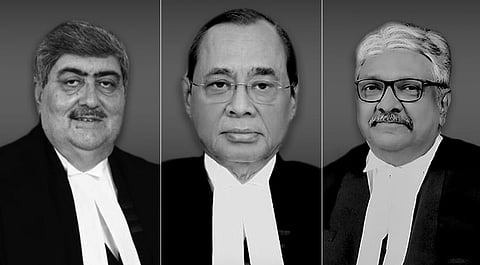
- News
- Columns
- Interviews
- Law Firms
- Apprentice Lawyer
- Legal Jobs
- हिंदी
- ಕನ್ನಡ

The Supreme Court today dismissed petitions calling for an investigation into the controversial Rafale Deal, by which the Indian government procured 36 fighter jets for Rs. 58,000 crore from French firm Dassault Aviation.